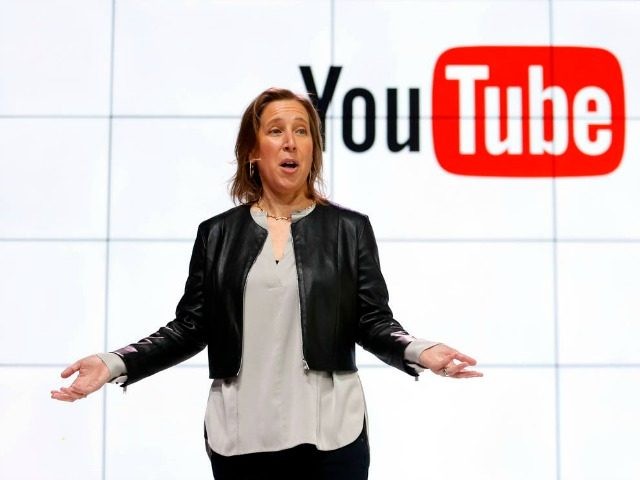Google-owned video platform YouTube has responded to calls to ban conservative commentator Steven Crowder, stating that the talk show host has not violated the site’s rules and will not be banned from the platform. After this article was originally published, YouTube reversed itself by demonetizing Crowder’s account, preventing him from earning ad revenue with his videos. The Google subsidiary blamed what it calls a “pattern of egregious behavior.”
Vox writer and video host Carlos Maza recently called for conservative commentator Steven Crowder to be removed from YouTube, claiming that Crowder repeatedly directed homophobic slurs at him. Maza took to Twitter to call Crowder out, claiming that despite being used to “online harassment,” Crowder had been “bothering him.”
Crowder published a full video response to Maza on his channel:
Crowder defended himself stating that his comments were jokes and “harmless ribbing” in a video he released earlier this week. However, critics still called for Crowder to be banned from the platform. YouTube was quiet about the situation for some time but has finally responded, stating that although Crowder’s language was “hurtful,” it did not violate the site’s policies. Team YouTube wrote on Twitter:
In a response to Gizmodo, Google’s Press Team discussed Crowder and why he hasn’t been banned, stating:
We have strict policies that prohibit harassment on YouTube.
In the first quarter of 2019 we removed 47,443 videos and 10,623 accounts for violation of our policies on cyberbullying and harassment.
We take into consideration whether criticism is focused primarily on debating the opinions expressed or is solely malicious. We apply these policies consistently, regardless of how many views a video has.
In videos flagged to YouTube, Crowder has not instructed his viewers to harass Maza on YouTube or any other platform and the main point of these videos was not to harass or threaten, but rather to respond to the opinion.
There is certain behavior that is never ok: that includes encouraging viewers to harass others online and offline, or revealing nonpublic personal information (doxxing).
None of Maza’s personal information was ever revealed in content uploaded by Crowder and flagged to our teams for review.
YouTube partly reversed itself by demonetizing Crowder’s account, preventing him from making money from ads placed on his videos. In a tweet, YouTube said “We have suspended this channel’s monetization. We came to this decision because a pattern of egregious actions has harmed the broader community and is against our YouTube Partner Program policies.”
Maza seems upset about the outcome, posing a question to LGBT employees at YouTube, stating: “YouTube has decided to side with the people who made our lives miserable in high school. It’s decided to use the platform you’ve helped create in order to arm bigots and bullies with massive megaphones. Why do you stick around? What are you going to do about it?”
In an article, Maza published a full statement which reads:
This just confirms what a lot of people in this space have suspected for a while: which is that YouTube’s anti-harassment policies are bullshit. They’re fake policies meant to trick advertisers into believing YouTube actually cares about policing what happens on its platform.
In a post to Vox subsidiary The Verge, Vox issued an official statement which reads:
At Vox Media, we have embraced partnering with other organizations to bring our work to as broad an audience as possible. We believe in the advantages of a free and open web that allows people to find their voices online. We share this belief with YouTube, and have spent years creating incredible work on the platform and growing loyal, engaged audiences across the YouTube community.
But the platform and the system now appears to be broken in some ways that we can’t tolerate. By refusing to take a stand on hate speech, they allow the worst of their communities to hide behind cries of “free speech” and “fake news” all while increasingly targeting people with the most offensive and odious harassment. They encourage their fans to follow suit and we now see our reporters and creators consistently targeted by the worst abuse online, with no remedy or ability to protect themselves.
YouTube knows this is a problem – it’s developed anti-harassment policies to hold its creators accountable and remove them from the platform when they are in violation. Yet YouTube is not enforcing the policies and are not removing known and identified users who employ hate speech tactics. By tacitly looking the other way, it encourages this behavior and contributes to a society more divided and more radicalized.
YouTube must do better and must enforce their own policies and remove creators who promote hate.
Crowder has also been tweeting about the incident, one of these tweets can be found below:
Other social media users took issue with Maza’s campaign to have Crowder banned. Disabled Internet personality Ricky Berwick posted a profanity-laced video in response to Maza, whose Twitter handle is “gaywonk,” stating that he has been “called every name in the book” but would not ask YouTube to censor his critics, advising Maza to “log off” if Crowder bothers him.
Update — This article has been revised to reflect YouTube’s decision to demonetize Steven Crowder after first claiming his behavior did not violate the platform’s rules.
Lucas Nolan is a reporter for Breitbart News covering issues of free speech and online censorship. Follow him on Twitter @LucasNolan or email him at lnolan@breitbart.com

COMMENTS
Please let us know if you're having issues with commenting.